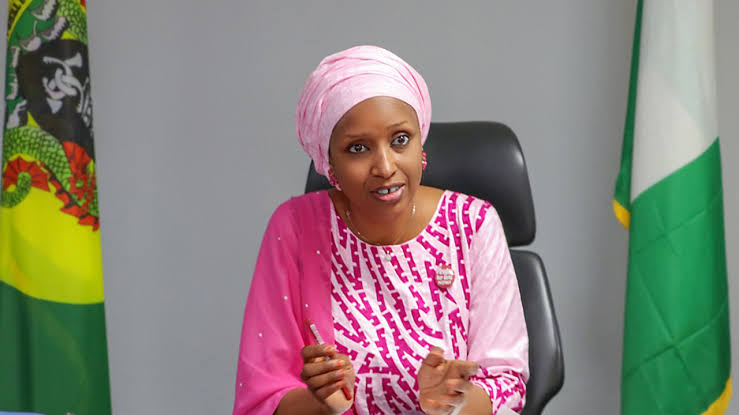Tinubu interested in winning the trust of Nigerians – Bala Usman
Special Adviser to the President on Policy Coordination and Head of Central Delivery Coordination Unit, Hadiza Bala Usman, has said the present administration is committed to fostering a robust governance system and ensuring citizens’ trust. She stated this on Tuesday while participating in a panel discussion at the Closeout Event of the Partnership to Engage, […]

Special Adviser to the President on Policy Coordination and Head of Central Delivery Coordination Unit, Hadiza Bala Usman, has said the present administration is committed to fostering a robust governance system and ensuring citizens’ trust.
She stated this on Tuesday while participating in a panel discussion at the Closeout Event of the Partnership to Engage, Reform and Learn (PERL) Programme in Abuja.
PERL is a public-sector accountability and governance programme, funded by the United Kingdom’s (UK) Foreign, Commonwealth and Development Office (FCDO), and has worked in Nigeria for eight years.
Speaking during the panel discussion Bala Usman said to achieve trust of the people, the present administration has launched innovative initiatives such as the Citizen Delivery Tracker, a tool enabling citizens to participate in governance by monitoring ministerial deliverables and providing feedback.
Another aspect of citizens engagement sits with, for example, we have a citizen delivery tracker. This is a tool that the Central Results Delivery Unit has had over the years, which we launched last year.
“Citizens brought us here, so one of the basic things I say is, once you’re campaigning for people in politics, you’re out there, you’re seated outside your car, you’re waving at everybody, and then once you’re elected, you now sit back in your tinted cars and nobody sees you, the citizens are unable to engage. That is the practical notion of how we evolve from when we’re seeking for political leadership, to when we get political leadership.
“The notion of isolation of citizens is what we need to consciously recognize and consciously engage. So this administration is keen to ensure the trust of all the citizens, citizens must be able to comment on what we’re doing and we must be able to take contributions of citizens, as we seek to improve the delivery of mandate given to us”, she said.
According to her, the Open Government Partnership is another key driver of citizen engagement, providing structures for governance to engage with citizens and facilitate dialogue.
She also indicated that President Tinubu’s commitment to citizen-centric governance is evident in his keen interest in citizen feedback, which is shared with him through the Citizen Delivery Tracker platform and a dashboard installed in his office.
In her remarks, the Foreign, Commonwealth and Development Office (FCDO) Development Director of the British High Commission in Nigeria, Cynthia Rowe, explained Nigeria’s pivotal role in achieving the Sustainable Development Goals (SDGs), stating that the world cannot meet these goals without Nigeria’s success.
She said Key achievements in Nigeria include increased citizen participation in public resource allocation in Kano, Kaduna, and Jigawa, with two out of three FCDO focus states rated as the most transparent by the Nigeria sub-national budget transparency survey and the World Bank fiscal transparency programme.
Rowe noted that PERL’s innovative approach has contributed to Constitutional Reform for autonomy to State parliaments, strengthening legislative scrutiny and accountability.
She also said the UK recognizes Nigeria’s strategic role in Africa and the world and will continue to support the country in tackling governance challenges through the Nigeria Governance and Climate Programme (NGCP).
The National Programme Manager for the PERL-ARC (Accountable, Responsible and Governance Pillar), Ifeanyi Peter Ugwuoke, and his counterpart, the Team Leader of PERL-ECP (Engaged Citizens Pillar), John Mutu, both spoke on the last eight years of the programme’s run in Nigeria.
In their separate remarks they said the programme focused on core governance systems, public policy, finance, and administration, adding that the program has operated in six states in the Southwest, six in the Southeast, and three in the Northeast, plus federal engagement.
